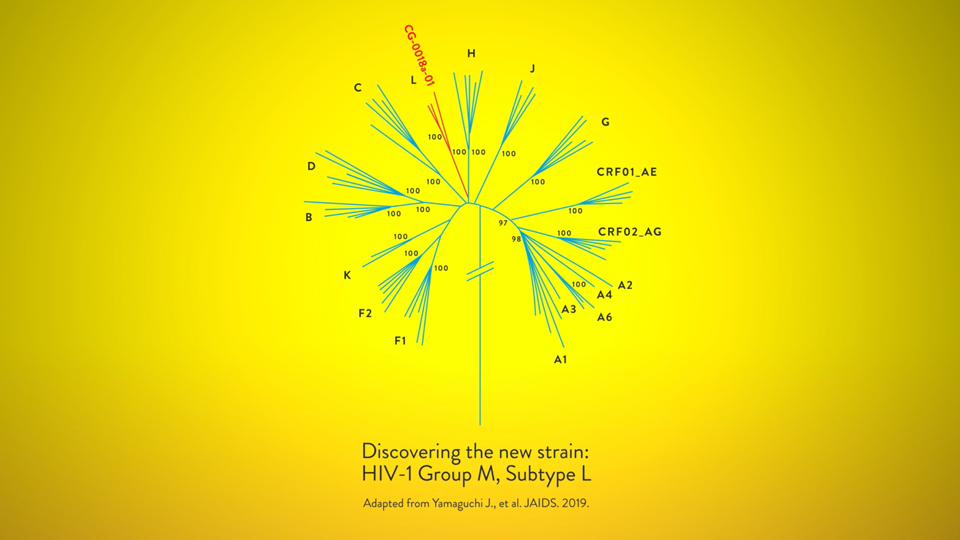
"Like looking for a needle in a haystack."
That's the kind of difficult detective work Abbott's Virus Hunters tackle every day as they track down mutating viruses from around the globe.
By developing new techniques and using next generation sequencing, this team recently announced the discovery of a new strain of HIV or human immunodeficiency virus.

Abbott's announcement of the discovery, published in the Journal of Acquired Immune Deficiency Syndromes (JAIDS), marks the first time a new subtype of HIV-1 has been identified in nearly two decades.1,2
Called HIV-1 Group M, subtype L, this new HIV subtype is part of the same group of viruses responsible for the global HIV pandemic, which has infected 75 million people to date and claimed an estimated 32 million lives.3
"This discovery reminds us that to end the HIV pandemic, we must continue to outthink this continuously changing virus and use the latest advancements in technology and resources to monitor its evolution," says Carole McArthur, Ph.D., M.D., professor in the departments of oral and craniofacial sciences, University of Missouri – Kansas City, and one of the study authors.
Finding one in a billion
Discovery of this new HIV strain culminated a process that began nearly four decades ago.
To determine whether an unusual virus is in fact a new HIV subtype, three cases must be discovered independently.1 The first two samples of this subtype were discovered in the Democratic Republic of Congo (DRC) in the 1980s and the 1990s.2 The third, collected in 2001, was difficult to sequence at that time because of the amount of virus in the sample and the existing technology.2
Today's next-generation sequencing technology allows researchers to build an entire genome at higher speeds and lower costs. Abbott scientists had to develop and apply new techniques in order to leverage next generation sequencing, which helped narrow in on the virus portion of the sample to fully sequence and complete the genome.2
"Identifying new viruses such as this one is like searching for a needle in a haystack," says Mary Rodgers, Ph.D., a principal scientist and head of Abbott’s Global Viral Surveillance Program, and one of the study authors. "By advancing our techniques and using next-generation sequencing technology, we are pulling the needle out with a magnet."
"We're making this new strain accessible to the research community to evaluate its impact to diagnostic testing, treatments and potential vaccines."
Twenty-five years of hunting viruses across the globe
Abbott created its Global Viral Surveillance Program 25 years ago to monitor HIV and hepatitis viruses and identify mutations, which helps ensure the company’s diagnostic tests remain up to date.4
"All of the viruses that we study really are just a plane ride away,” Rodgers says. “The discovery of this new strain of HIV reminds us of why the work we do at Abbott is so important. If we can prevent even one person from becoming infected with HIV or hepatitis, then we've done our jobs."
abbott.com


